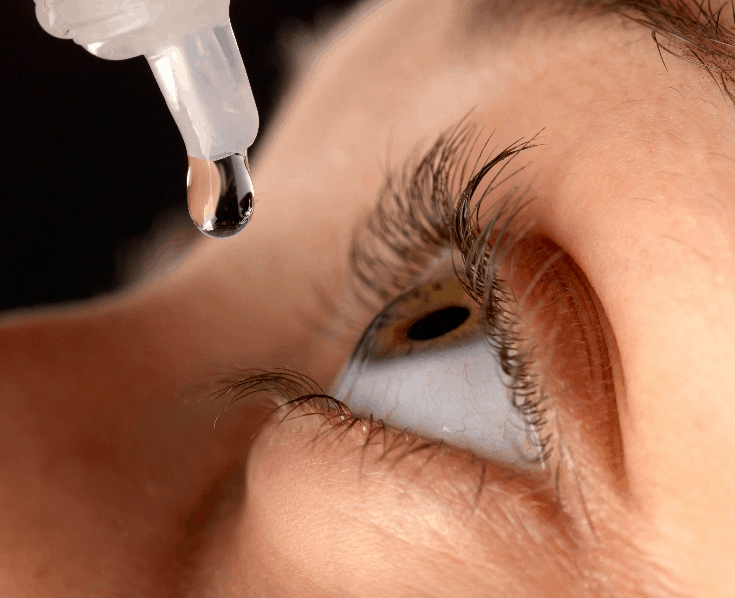A healthy ocular surface is bathed in a consistent layer of tears that keep the eye lubricated and wash away debris. If the eyes do not produce enough tears, or if there is an imbalance in the composition of the tears, dry eye disease can occur. The symptoms of dry eye disease include itchy, red or irritated eyes, blurry vision, a “foreign body” sensation, sensitivity to light and pain. For some people, the symptoms of dry eye disease are merely uncomfortable; for others, they significantly hamper quality of life.
If you are struggling with symptoms of dry eye disease, Boston Eye Physicians and Surgeons is here for you. Our experienced ophthalmologists are very knowledgeable about the condition and, after learning more about you and the circumstances of your case, can recommend the best way to minimize your symptoms and restore your eyes to optimal health.
What Causes Dry Eye?
In some people, dry eye disease occurs when tear production decreases. This can happen because of age-related factors, certain medications, medical conditions or environmental factors such as living in a dry or arid climate. Blepharitis, or inflammation of the eyelids, can also cause dry eye to develop.
For other people, an imbalance in the composition of the tears causes the tears to evaporate too quickly (leading to the eyes drying out). A common problem that compromises tear composition affects the oil layer of the tears (the other layers are water and mucus). Small glands called the meibomian glands produce meibum, or oil, that helps the tears “stick” to the ocular surface. If the meibomian glands become blocked or clogged with hardened oil secretions, it can throw off the balance of the tear film and cause the tears to evaporate too quickly off the ocular surface. This is known as meibomian gland dysfunction or MGD. An infestation of Demodex mites can also harm the meibomian glands.
Treatments for Dry Eye

Treating dry eye depends on the underlying cause of the problem. Based on the type of dry eye you have, your treatment may focus on conserving tears, increasing your tear production or balancing out the composition of your tear film.
If blepharitis is causing or contributing to dry eye, treatments to keep the eyelids clean can help improve symptoms. Our doctors may recommend carefully soaking and scrubbing the eyelids clean at home with one of the many products we sell in our office. Alternatively, we can perform in-office deep cleaning treatment to remove debris or Demodex mites from your eyelids.
Artificial Tears
Artificial tears and ointments are often the first line of defense against dry eye treatment. You may need to experiment with several different types of products to find the one that works for you. Restasis is a prescription eyedrop that increases your normal tear production.
Punctual Plugs
Another option is to place tiny “punctal” plugs in the ducts that drain tears out of your eyes. The plugs may be temporary and dissolve quickly, or they may be permanent. Using these plugs helps alleviate some of the symptoms of dry eye and reduce the need for artificial tears.
Surgery
Surgery can be performed to permanently close your tear ducts to allow more tears to remain on your ocular surface. The procedure is performed on an outpatient basis with local anesthetic and a quick recovery.
Request an Appointment With Our Team
If you have been diagnosed with dry eye disease or are experiencing symptoms that suggest a problem with your tears, the team at Boston Eye Physicians and Surgeons invites you to see us for a consultation. We will explain your treatment options and help you find the right fit for your needs. Call or email us today to request an appointment.




